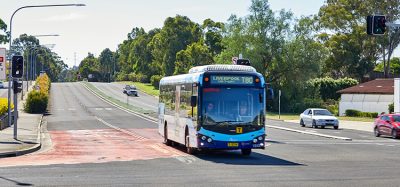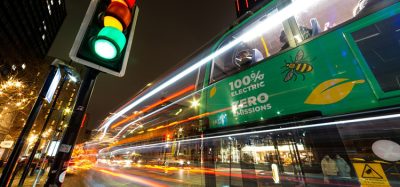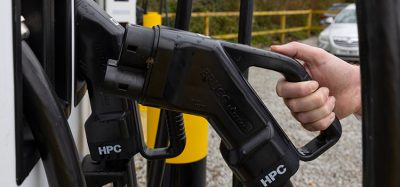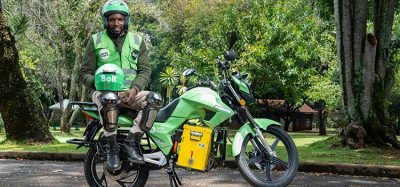How India and Germany are cooperating on sustainable urban mobility challenges
- Like
- Digg
- Del
- Tumblr
- VKontakte
- Buffer
- Love This
- Odnoklassniki
- Meneame
- Blogger
- Amazon
- Yahoo Mail
- Gmail
- AOL
- Newsvine
- HackerNews
- Evernote
- MySpace
- Mail.ru
- Viadeo
- Line
- Comments
- Yummly
- SMS
- Viber
- Telegram
- Subscribe
- Skype
- Facebook Messenger
- Kakao
- LiveJournal
- Yammer
- Edgar
- Fintel
- Mix
- Instapaper
- Copy Link
Posted: 8 April 2019 | Anke Karmann-Woessner | No comments yet
Anke Karmann-Woessner, Head of the Urban Planning Department in Karlsruhe, discusses the city-to-city collaboration between Nagpur (Maharashtra) and Karlsruhe (Baden-Württemberg), and the benefits which are achievable as a result.


Maharashtra is the second-largest and fastest-growing state in India. Thanks to its key engineering, automotive, information technology, banking, finance and biotechnology industries, its thriving university landscape and a strong orientation towards the development of smart cities, Maharashtra is an extremely interesting partner for the State of Baden-Württemberg. Baden-Württemberg is one of the leading economic regions in Germany and Europe, with world-famous companies and thousands of successful, small- and medium-sized enterprises, innovative strength and inventive spirit, high productivity and low rates of unemployment.
IUC European City Pairing programme


Indian government’s ‘100 Smart Cities’
In the future, Nagpur intends to position itself strategically and closely with its international partners, including Germany, implementing ambitious goals within the Indian government’s ‘100 Smart Cities’ development through the exchange of know-how. The Nagpur Municipal Corporation (NMC) hosted colleagues from Karlsruhe for a three-day workshop where discussions focused on smart mobility and transport. In particular, Karlsruhe proposed reaching out to the citizens of Nagpur to raise awareness for cycling infrastructure and prevent additional pollution in the city centre, including a discussion of existing business models. Both cities agreed to work on sustainable urban mobility with a specific focus on non-motorised transport. The experts gave their initial impressions of Nagpur city and the potential for non–motorised transport in urban areas. During the concluding session, the two cities prepared a detailed activity chart to implement the project in a timely manner.


Advantages of working with Karlsruhe
The City of Karlsruhe can contribute experience gained from the Urban Agendas Urban Mobility thematic partnership. Active mobility, that is cycling and walking, is a core component of the action plan drawn up over the last two years, as well as improved access to public transport and smart solutions to deliver multimodal transport concepts. For many years, the expansion of bicycle traffic has been a focal point of traffic planning in Karlsruhe. As a result, cycling accounts for 26 per cent of the modal split. Working with Karlsruhe University of Applied Sciences, and supported by the state programme of Baden-Württemberg, the real laboratory and the Go-Karlsruhe research project, the current focus is on pedestrian traffic. The approach also focuses on behaviour change, dealing with the very different climate zones, and on strategies of communication and participation. These aspects are key elements in the very diverse cultural spaces.
Bicycle rental in India
The debate around setting up a bicycle-lending scheme focused on the relative merits of flexible and station-based systems. Flexible systems offer advantages because of their quicker and cheaper design, but they are also less visible and require more bicycles for the same perceived customer availability. The key advantage of systems based on docking stations is their better visibility. This is particularly important for user access to metro stops, when start and destination points are known. However, the necessary infrastructure has to be planned in time and budgeted for. For this reason, it makes particular sense to link the payment system to bicycle rental stations to local public transport stops (spatial integration), and partner on tariffs and marketing.
Initially, stations could be located along stops and at points of interest (universities, large office buildings). The primary target group for bicycle rental systems in India are students. This group’s interest can help complement resident engagement. In particular, it is important to invest in mobility behaviour surveys and conduct feasibility studies throughout the entire process. Mobility behaviour in India is closely linked to status thinking. Many Indians would rather buy an expensive motorcycle than a cheap car and the bicycle is still considered a ‘poor man’s vehicle’. This is why it is crucial to involve residents to foster greater identification with the system, through the design of the bikes and final docking stations, and by clarifying trademark rights.
Data use and ownership
Another crucial point is how data use and ownership is regulated. In Europe, the European Data Protection Regulation applies, as do the General Terms and Conditions for customers. In India, national regulations apply. Data is stored by the on-site operator on Indian servers. Again, General Terms and Conditions regulate the customer relationship with regard to data.
What is the IUC?
Funded by the European Union, the International Urban Cooperation (IUC) programme supports the achievement of bilateral policy objectives on urban development and climate change, and Sustainable Development Goals of the New Urban Agenda (Habitat III) such as the Paris Agreement. The programme supports the Global Covenant of Mayors for Climate & Energy by bringing together local governments voluntarily committed to implementing ambitious climate and energy objectives. Many cities may wish to carry out sustainable projects, but lack specific knowledge or capacity. The listed solution providers have experience in helping cities and regions achieve their sustainability goals.
The IUC programme will engage with major international financial institutions and partners to link city decision-makers with potential funders. Target countries include China, India, Japan, Canada, Mexico, USA, Argentina, Brazil, Chile, Colombia and Peru. For component 2, South Korea, Vietnam, Indonesia, Malaysia, Singapore and all Latin American and Caribbean countries (LAC) are included in the programme. IUC India will continue supporting the two cities and oversee the joint development and implementation of the local action plan.
Biography
Anke Karmann-Woessner studied Architecture and Urban Planning at the Technical University of Darmstadt. After gaining a post-grad state examination for senior service in Public Administration, she worked in the Bavarian state public administration and then abroad in France. She has a PhD in European Environmental Law from the Technical University of Kaiserslautern and almost 30 years of experience in all fields of urban development and mobility, as well as in EU, federal and state funded projects, project and competition management, citizen participation, moderation processes, numerous judging and lecturing activities. Since 2013, she has been Head of the Urban Planning Department in Karlsruhe.
Related topics
Mobility Services, Multimodality, Sustainable Urban Transport
Related modes
Bikes & Scooters
Related organisations
International Urban Cooperation (IUC)
Related people
Dr. Ramnath Sonawane








